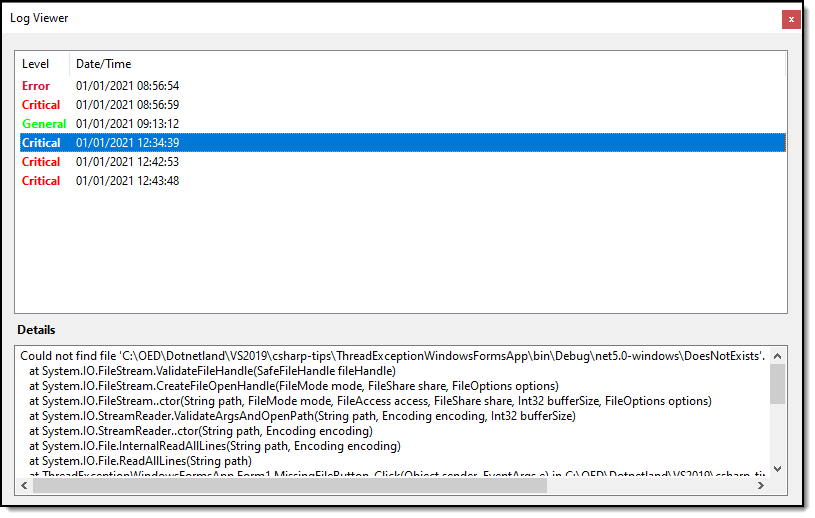Source and code sample for KP.ExceptionHandling NuGet package.
- Add the above package
- Modifiy code for OnProcessingCompletedEvent
using System;
using System.Collections.Generic;
using System.Diagnostics;
using System.Linq;
using System.Threading.Tasks;
using System.Windows.Forms;
using ExceptionHandling;
namespace KP_ExceptionPackageTest
{
static class Program
{
/// <summary>
/// The main entry point for the application.
/// </summary>
[STAThread]
static void Main()
{
Application.SetHighDpiMode(HighDpiMode.SystemAware);
Application.EnableVisualStyles();
Application.SetCompatibleTextRenderingDefault(false);
// Handling UI thread exceptions to the event.
Application.ThreadException += UnhandledExceptions.Application_ThreadException;
// For handling non-UI thread exceptions to the event.
AppDomain.CurrentDomain.UnhandledException +=
UnhandledExceptions.CurrentDomain_UnhandledException;
// Indicates capturing exception has completed
UnhandledExceptions.OnProcessingCompletedEvent += OnProcessingCompletedEvent;
// TODO Change this to your startup form
Application.Run(new Form1());
}
private static void OnProcessingCompletedEvent()
{
var f = new AppErrorForm { Text = @"Your title goes here" };
f.ShowDialog();
Application.Exit();
}
}
}

